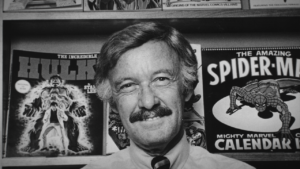The One Movie From 2013 You Have to See
In short, the movie year ends, as they almost always do, in disappointment that verges on dismay. But there is hope.
“Her” is a transcendently fatuous movie in which a sappy fellow falls in love with the voice of his computer. “American Hustle” is a dopey comedy with a couple of funny scenes, mostly involving the arrangement of the leading man’s hair. “12 Years a Slave” contains the most brutal flogging scene I’ve ever seen in a movie and ends with its protagonist lost to history and, I think, to meaning. All it says is that slavery was harsh, which I think we knew going in. “The Invisible Woman” carefully recounts the story of Charles Dickens’ love affair with a much younger woman, but starring and directed by Ralph Fiennes, it somehow leaves out the passion that must have moved them to their endless romance.
In short, the movie year ends, as they almost always do, in disappointment that verges on dismay, with one reluctantly thinking that maybe, after all, the year’s best movie was the Coen brothers’ “Inside Llewyn Davis,” a minor but enjoyable comedy drama that lacks the presence of Frances McDormand and doesn’t hold a patch on “Fargo,” but is at least watchable in its little way.
Maybe that’s the thing about movies. Maybe they’re all just minor but enjoyable. In which case I’ve certainly wasted a large portion of my adult life, haven’t I? Not quite minor or enjoyable, let’s not leave out “The Wolf of Wall Street.” Martin Scorsese is, I hold, the most expert director now working regularly in the movies. Yet I also am convinced that this is among the weakest of his works. It purports to be the biography of a high-flying financier (Jordan Belfort as played by Leonardo DiCaprio), who makes a ton of money on the eponymous thoroughfare, loses it, gets a slap-on-the-wrist jail sentence and is left, as far as the movie is concerned, making inspirational speeches to adoring audiences. If it has a point, it is that if you’re slick enough you can get away with anything in America, which is another thing we knew going in.
Mostly, “Wolf” is about sex, drugs and rock ’n’ roll — though it has nothing novel to say about any of those topics. It is also about three hours long, which is at least an hour too much of a very so-so thing. There are at least three places where the movie could have gladly climaxed, but it sails right on past these places before it meanders to a conclusion. Really, I don’t know what the purpose of the exercise is — except to flaunt its excesses. And, of course, to await its director’s inevitable return to form.
I am reluctant to leave this year behind on such a sour note, and, happily, I don’t have to. For we have yet to consider “Liv & Ingmar,” a documentary account of the long, mostly happy, occasionally fractious love affair between Liv Ullmann, that loveliest of actresses, and Ingmar Bergman, that darkest of directors, from its rapturous beginnings, through its inevitable ups and downs, to the peaceful conclusion of its final years. Their story is told largely by Ullmann, forthrightly facing the camera, with patience and tolerance. Bergman is represented by excerpts from his writing, voiced by an actor. Twenty-one years younger than the director, she has, as anyone who has followed her career would assume, a surpassing grace and good humor.
The film has a warmth that takes the chill off the northern climes where it is largely set. It is a lovely love story, directed by Indian-born filmmaker Dheeraj Akolkar, with a welcome unpretentiousness. It is not particularly rich in clips from their films, which is all right with me. The allusions to their work are just enough to remind us of the power of their performances. And of their loyalty to each other. At the end of Bergman’s life, Ullmann directed a script by him, “Faithless,” that is, I think, one of the best films either of them made.
Somewhere in the documentary’s concluding chapter, Bergman is heard to chuckle in amazement at the length of their involvement and its overall happiness. We do not disagree. This a movie you will have to seek out (on DVD probably), but you must do so. It has charm and a pretty rare truth. It ends the old year (or begins the new) on a note of cheer that surprises and delights. This pair explored a lot of darkness over the course of their long careers, but one suspects that they did so successfully, because they kept their heads on straight and held them high. “It’s only a movie,” Hitchcock immortally said. Yes, of course. But for some rare moments, that can be everything, as “Liv & Ingmar” teaches us with gentle force.
Your support matters…Independent journalism is under threat and overshadowed by heavily funded mainstream media.
You can help level the playing field. Become a member.
Your tax-deductible contribution keeps us digging beneath the headlines to give you thought-provoking, investigative reporting and analysis that unearths what's really happening- without compromise.
Give today to support our courageous, independent journalists.






You need to be a supporter to comment.
There are currently no responses to this article.
Be the first to respond.